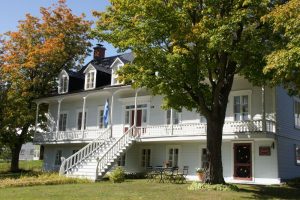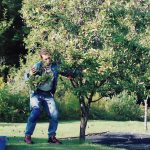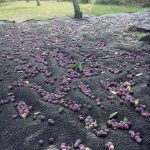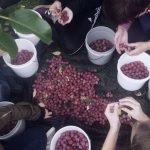Back to the land
In the 1970s, society returned to the land in order to cultivate it and make a living from it in a non-industrial way. Subsequently, a new form of tourism, known as agrotourism, emerged. It enabled visitors to experience first hand certain aspects of producer’s work right on their premises. In the process, they were introduced to local products showcased at gourmet stops (Arrêts Gourmands).

On the Côte-du-Sud, a real bridge has been built between the practices and flavours of yesterday and today. A multitude of orchards have been brought back to life. Since we can’t present them all here, we have chosen one known as a “prunelaie” in French, a name that refers to an orchard devoted exclusively to growing plum trees
Opened in 1993, the Maison de la prune in Saint-André de Kamouraska is a love affair between an estate and its owners. When Paul-Louis Martin and Marie de Blois bought the property in 1974, they didn’t know that the remains of a plum orchard were located there. After tasting plums and discovering their history dating back thousands of years, the Blois-Martin Blois family restored the last plum orchard on the Côte-du-Sud and perhaps in Quebec. It is none other than the orchard that once belonged to Sifroy Dumont dit Guéret.
A fruit that dates back 2,000 years – Enjoy the video with a transcript
The orchard is made up of Blue Damson, Yellow Damson and Reine-Claude de Montmorency plums, as well as a few old apple, crab apple and pear trees.
The de Blois-Martin family had to learn everything about growing plums, from planting, pruning and picking to processing the little fruit.
Did you know that not all fruits are picked in the same way? Apples are picked by twisting and lifting, and pears by lifting and inverting the fruit. Cherries have to be picked with their stalks. Plums are quite different. They have to be shaken off the trees.





